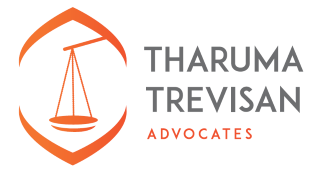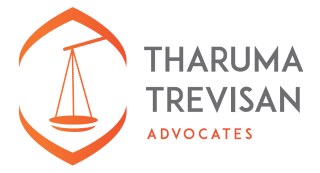
CASE BRIEF Okiya Omtatah Okoiti and Wyclife Gisebe Nyakina -vs- the Attorney General and 4 others Civil Application No. 15 of 2015 (UR 152015)
By Boaz Kaawe
1. Facts:
1.1. The petitioners (Okiya Omtatah Okoiti and Wyclife Gisebe Nyakina) on the 5th of February 2014, had invited the High Court to intervene and stop the contracting of the China Road and Bridge Corporation (the-4th respondent) to implement the Mombasa-Nairobi-Malaba/Kisumu standard gauge railway on grounds of flagrant violation of the 2010 constitution of Kenya; which the Court (under Lenaola J as he then was) declined concluding that the procurement of the SGR project did not contravene the constitution of Kenya; and that the Public Procurement and Disposals Act did not apply to the procurement; thus Court ordered that the documents tendered in support of the petition be expunged from the record.
1.2. Aggrieved by that judgment, the Law Society of Kenya filed Civil Appeal No. 10 of 2015 with 5 grounds of appeal while Okiya Omtatah Okoiti and Wyclife Gisebe Nyakina (hereafter Omtatah and Gisebe) filed Civil Appeal No. 13 of 2015 with 51 grounds of appeal. The two appeals were consolidated by an order of the Court given on 8th November 2016 with Civil Appeal No. 13 of 2015 as the lead file.
2. Background:
2.1. The High Court (under Isaac Lenaola J as he then was) had declined an invitation by the appellants Okiya Omtatah Okoiti, Wyclife Gisebe Nyakina and the Law Society of Kenya, to stop the construction of the Standard Gauge Railway (SGR) thereby igniting this appeal.
2.2. The petitioners had applied for interim conservatory orders to suspend the contracts entered into between the Kenya Railways Corporation (2nd respondent) and China Road and Bridge Corporation (4th respondent) for the supply and installation of facilities, locomotives and rolling stock of the railway.
2.3. The court had dismissed the appellants’ petitions in which they claimed that the procurement and contracting for the SGR violated the Constitution and the laws of Kenya.
2.4. In the same judgment, the learned Judge found that the documents that had been tendered by the appellants as evidence in support of the petitions were inadmissible having been obtained illegally.
2.5. He then accordingly ordered those documents to be expunged from the record.
3. Laws applicable:
3.1. Articles 35 and 259 of the 2010 constitution of the Republic of Kenya as well as article 227 which provides that “When a State organ or any other public entity contracts for goods or services, it shall do so in accordance with a system that is fair, equitable, transparent, competitive and cost-effective.”
3.2. Section 29, 50, 87, 76 of the repealed Public Procurement and Disposals Act as well as section 6(1) of the same which provided that “Subject to the Constitution, where any provision of this Act conflicts with any obligations of the Republic of Kenya arising from a treaty, agreement or other convention ratified by Kenya and to which Kenya is party, the terms of the treaty or agreement shall prevail.”
4. Applicants’ case:
4.1. That the Standard Gauge Railway project was not provided for in the national revenue and expenditure estimates of the relevant year as required under Article 220(1) of the Constitution which should have been subjected to public participation as required under Article 221(5) of the Constitution;
4.2. That there was no evidence that the process through which the project was procured was fair, equitable, transparent, competitive and cost efficient as required by Article 227(1) of the Constitution and the Public Procurement and Disposals Act.
4.3. That no feasibility study and design of the project was undertaken before seeking contractors to implement it;
4.4. That there was a conflict of interest in the government contracting China Road and Bridge Corporation(CRBC) to implement the project whose feasibility study and design of the project was undertaken before seeking contractors to implement it;
4.5. That there was a conflict of interest in the government contracting CRBC to implement the project whose feasibility study and design it had intriguingly carried out of free;
4.6. That in any event, CRBC was ineligible for the award of the contract as it had been blacklisted by the World Bank for engaging in corruption in a road project in the Philippines
4.7. That the single sourcing of CRBC to execute the project contravened Articles 10, 46, 47, 201 and 227 of the constitution, the Public Officer Ethics act; and the Ethics and Anti-Corruption Act;
4.8. That the contract awarded to CRBC was therefore “unconstitutional, irregular, illegal, invalid null and void.”
4.9. That the Attorney General (1st respondent) and The Public Procurement Oversight Authority (3rd respondent) failed to safeguard public interest and common good in failing to ensure the procurement accorded with the law;
4.10. That the railway should have been procured through competitive bidding.
4.11. That the project was not provided for in the national revenue and expenditure estimates of the relevant year as required under Article 220(1) of the Constitution which should have been subjected to public participation as required under Article 221(5) of the Constitution;
4.12. That there was no evidence that the process through which the project was procured was fair, equitable, transparent, competitive and cost efficient as required by Article 227(1) of the Constitution and the Public Procurement and Disposals Act;
4.13. That the process of procurement was shrouded in secrecy, which was a violation of Article 35 of the Constitution on access to information; and
4.14. That the award of the contract to CRBC for the supply and installation of facilities and diesel powered engines which were outdated and polluted the environment violated those provisions of article 42 of the Constitution which provides that every person has a right to a clean and healthy environment as well as Article 69.
5. Respondent’s case:
5.1. That the SGR project design complied with all the environmental requirements since an environment and social impact assessment study was undertaken in 2012 and all possible environmental concerns addressed;
5.2. That the matters the appellants were complaining of were already the subject of investigation by the other organs, namely, the National Assembly, the Auditor-General, and the EACC;
5.3. That the petition was deficient in particulars.
5.4. That the prayers sought by the appellants would go against the doctrine of separation of powers.
5.5. That the appeals had been overtaken by events; as the project had long been completed and commissioned as thus the appeal was moot and an academic exercise; and that what was done could not be undone.
5.6. That the CRBC was barred by the World Bank from undertaking projects on suspicion of collusion but not for being engaged in corruption.
5.7. That a constitutional petition could not be founded on alleged “public documents” obtained in breach of the Constitution and the Evidence Act.
5.8. That a constitutional petition could not be founded on documents whose source or origin had not been disclosed and whose authenticity could not be vouched for; and
5.9. That the use and production of the alleged “public documents” without disclosing their source or authenticity was a breach of KRC’s right to a fair hearing as guaranteed under Article 50 of the Constitution.
6. ISSUES:
6.1. Whether the appeal was moot?
6.2. Whether the learned Judge erred in ordering the documents that had been presented by the appellants as evidence in support of the petitions to be expunged from the record?
6.3. Whether the procurement violated Article 227 of the Constitution and statutory law and whether the procurement in this instance was exempt from the provisions of the Act by reason of Section 6(1) thereof?
7. DETERMINATION OF ISSUES:
7.1. As to whether the appeal was a moot: No, the consolidated appeal was not moot.
7.2. While the reliefs in the nature of orders of injunctions to restrain the implementation of the impugned contract or to quash the award of the contract were no longer within reach, the issues relating to the constitutionality of the procurement; the interpretation and applicability of Section 6 of the Public Procurement and Disposals Act; and the question whether annexures to the petitions were properly expunged, remained for consideration by the Court of appeal.
7.3. As to whether the learned Judge erred in ordering the documents that had been presented by the appellants as evidence in support of the petitions to be expunged from the record: No, the learned judge never erred in the order he made that the documents that had been presented by the appellants as evidence of the petition be expunged from the record.
7.4. The appellants had failed to request the concerned Government Departments to supply them with the information they required, and to which they were entitled to receive in accordance with Article 35 of the Constitution.
7.5. It was not necessary for the appellants to resort to undisclosed means to obtain public documents.
7.6. The applicants failed to invoke the laid down procedure of production of documents.
7.7. It would be detrimental to the administration of justice and against the principle underlying Article 50(4) of the Constitution to in effect countenance illicit actions by admission of irregularly obtained documents.
7.8. There was no justification for not following proper procedures in the procurement of evidence.
7.9. As to whether the procurement violated Article 227 of the Constitution and statutory law and whether the procurement in this instance was exempt from the provisions of the Public Procurement and Disposals Act by reason of Section 6(1) thereof; Yes the procurement violated Article 227 of the constitution and statutory law and was not exempt from the provisions of the “Act” by reason of section 6 (1).
7.10. The contract with CRBC as the contractor had been procured long before the financing agreement was entered into as opposed to section 6 of the Act which required such a loan agreement to precede and dictate the identification of the supplier of goods and services.
7.11. Section 6(1) of the Act did not oust the application of the Act from the procurement and Kenya Railways Corporation as the procuring entity was under an obligation to comply with the requirements of the Act in the procurement of the Standard Gauge Railway.
Latest Posts
Step by Step Guide to Subdvision of Land in Kenya
Agnetah Muli LL. B, KSL Dip. What is Subdivision? The process of subdivision involves the division of land into two or more parcels. The purpose is to...
COMPREHENDING REDUNDANCY IN EMPLOYMENT LAW – KENYA
“Fairness in all forms of termination is the staple of labour law”- Anon By Quincy Jesse Kiptoo LL.B. (Hons), CPM, Dip in Law The word Redundancy...

